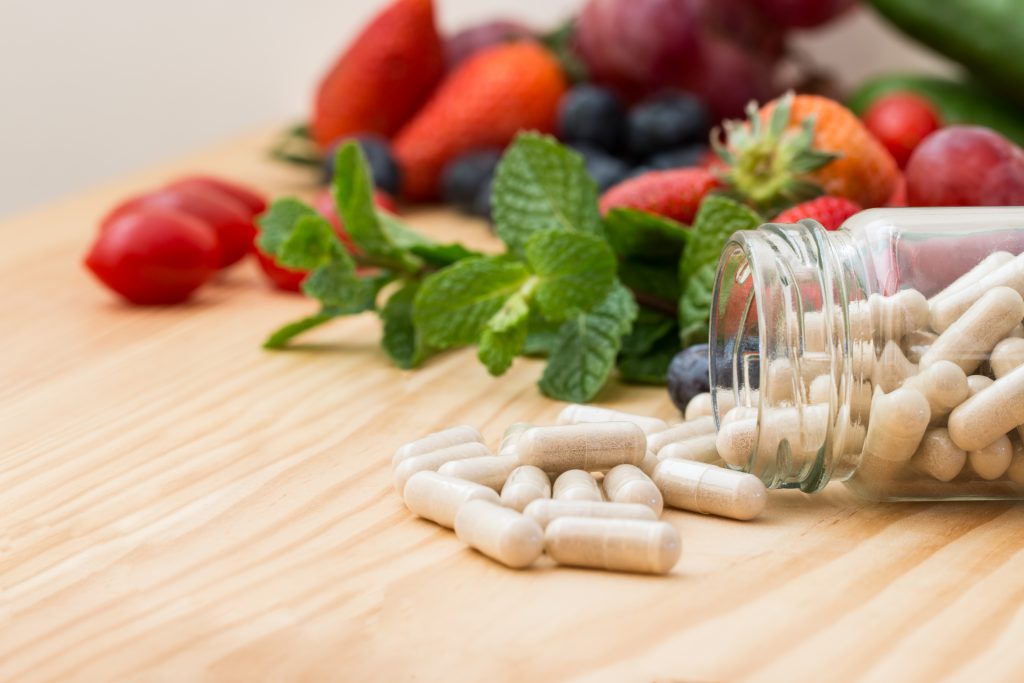Sunday Times Healthy Times
Give Your Body A Boost
With winter in full-swing, we are more vulnerable to colds and flu. To protect ourselves against infection we need to strengthen our immune systems. Eating a balanced diet, getting plenty of sleep, staying hydrated and exercising regularly all contribute to our general well-being – but, especially at this time of year, we may need something extra.
The supermarket and pharmacy shelves are full of vitamins and supplements promising to keep us healthy. But which are most likely to give our immune systems a fighting chance against the winter bugs?
Body boosters
The immune system is a complex network of tissues, cells and organs that form our body’s defence against infection. “Many nutrients play a role in how well our immune systems function, so if you suffer from regular colds and flu, you should check which nutrients your body is lacking,” says Jessica Kotlowitz, a registered dietician at thegreendietitian.co.za.
“Vitamin C and zinc are the most common and effective nutrient supplements used for boosting immune function,” says Kotlowitz.
Vitamin D, also known as the sunshine vitamin because our bodies make it when we are exposed to sunlight, is also important. “Many people become vitamin D-deficient during winter due to the lack of sunlight and this could compromise their immune systems and cause the classic ‘winter blues’,” says Kotlowitz. “Consider taking a vitamin D supplement throughout winter if you don’t have enough exposure to sunlight.”
There is also evidence to support the effectiveness of herbal supplements containing garlic, ginger, echinacea, turmeric, mushroom extracts and probiotics in boosting immunity. “Add garlic, ginger, turmeric, chilli, oregano and parsley to your winter stews, soups and curries for an immune-boosting kick,” says Kotlowitz.
The Health Products Association of South Africa (HPASA), a non-profit organisation representing the interests of the natural health products industry, sets standards for ethical and credible local health products.
Supplements, classified as complementary and alternative medicines (CAMS), are currently regulated in terms of the general regulations of the Medicines and Related Substances Act. “However, until the full CAMS regulations come into force, it is important to make sure that supplements are manufactured according to modality-appropriate good manufacturing process [in other words, under good manufacturing procedure or GMP with an appropriately licensed company] as set by the World Health Organisation,” says Chai Pandith, HPASA board member and country manager of the pharmaceutical division of Himalaya Wellness.
Vitamin C in the spotlight
Also known as ascorbic acid, vitamin C is found in some foods naturally, added to others and can be taken as a supplement. Many experts say that this powerful antioxidant helps to prevent or lessen the duration and severity of the common cold and supports a healthy immune system. Kotlowitz explains that some cells of the immune system need vitamin C in order to do their job and fend off infections. “If someone has a vitamin C deficiency, they may be more prone to certain types of infections,” she says. “Having enough vitamin C in the body can improve the functioning of the immune system.”
Vitamin C
How much should you take?
“Food sources like oranges, guavas, tomatoes and green leafy vegetables are high in vitamin C. However, to consume enough vitamin C, you would have to eat at least 14 oranges in one sitting,” explains Vanessa Sew Chung Hong, marketing executive for Vital Health Foods, which sells vitamin C supplements in various forms and strengths. “That is why it is often necessary to take a supplement to give you enough of this nutrient.”
The recommended daily allowance for vitamin C is 75-90mg per day, says Kotlowitz. “Since it is water-soluble, any excess the body doesn’t use is usually excreted in the urine. Extremely large dosages (above 2 000mg per day) may increase the risk of kidney stones and stomach upset. Most studies on vitamin C supplements are based on dosages of 500-1 000mg per day, which has been found to be a safe and effective dose,” she says.






 Sign-up and receive the Business Media MAGS newsletter OR SA Mining newsletter straight to your inbox.
Sign-up and receive the Business Media MAGS newsletter OR SA Mining newsletter straight to your inbox.